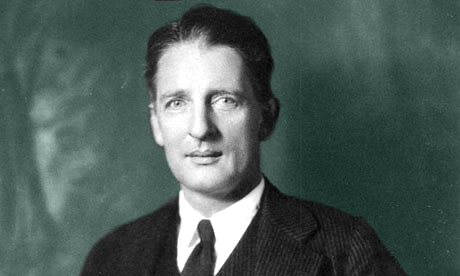
On November 13th, 1936, Thomas Wolfe wrote an angry, hurt, agonized-over dispatch to Maxwell Perkins, in which the novelist effectively severed ties with his longtime editor and mentor—whom he accused of “[trying] to exert, at no expense to oneself, such control of a man’s future and his future work as will bring one profit if that man succeeds, and that absolves one from any commitments of any kind should he fail.” Furthermore, he requested that Perkins draft a formal letter explicitly absolving Wolfe of any and all future obligations to Scribner’s. [Earlier this week, we published Wolfe’s letter, along with draft fragments, here.—Eds.] Below, Perkins’ responses to Wolfe. “I can’t express certain kinds of feelings very comfortably,” writes Perkins, “but you must realize what my feelings are toward you. Ever since Look Homeward, Angel your work has been the foremost interest in my life…”
+
TO THOMAS WOLFE
November 17, 1936
Dear Tom:
I haven’t time to write today—we have a meeting that often lasts till five and my late p.m. and evening are full too. I can say this though, I never knew a soul with whom I felt I was in such fundamentally complete agreement as you. What’s more, and what has to do with it, I know you would not ever do an insincere thing, or anything you did not think was right. I don’t fully understand your letter, but I’ll answer it as best I can. You must surely know, though, that any publisher would leap at the chance to publish you.
Always yours,
You have with us at present a balance of over $2000, all but about $500 of which is overdue.
+
November 18, 1936
Dear Tom:
With this is a more formal letter which I hope is what you want. This is to say that on my part there has been no “severance.” I can’t express certain kinds of feelings very comfortably, but you must realize what my feelings are toward you. Ever since “Look Homeward, Angel” your work has been the foremost interest in my life, and I have never doubted for your future on any grounds except, at times, on those of your being able to control the vast mass of material you have accumulated and have to form into books. You seem to think I have tried to control you. I only did that when you asked my help and then I did the best I could. It all seems very confusing to me but, whatever the result, I hope you don’t mean it to keep us from seeing each other, or that you won’t come to our house.
Max
+
November 18, 1936
Dear Tom:
You ask me to explicitly state the nature of your relations with Charles Scribner’s Sons. To begin with, you have faithfully and honorably discharged all obligations to us, and no further agreement of any sort exists between us with respect to the future. Our relations are simply those of a publisher who profoundly admires the world of an author and takes great pride in publishing whatever he may of that author’s writings. They are not such as to give any sort of rights, or anything approaching that, over that author’s future work. Contrary to custom, we have not even an option which would give us the privilege of seeing first any new manuscript.
We do not wholly understand parts of your letter, where you speak of us as putting you in a position of denying an obligation that does not exist, for we do not know how we have done that; or where you refer to “exerting control of a man’s future,” which we have no intention of doing at all, and would not have the power or right to do. There are other phrases, in that part of your letter, that I do not understand, one of which is that which refers to us as being absolved from any commitments of any kind, “should the author fail.” If this and these other phrases signify that you think you should have a contract from us if our relations are to continue, you can certainly have one. We should be delighted to have one. You must surely know the faith this house has in you. There are, of course, limits in terms beyond which nobody can go in a contract, but we should expect to make one that would suit you if you told us what was required.
Ever sincerely yours,
Max
+


